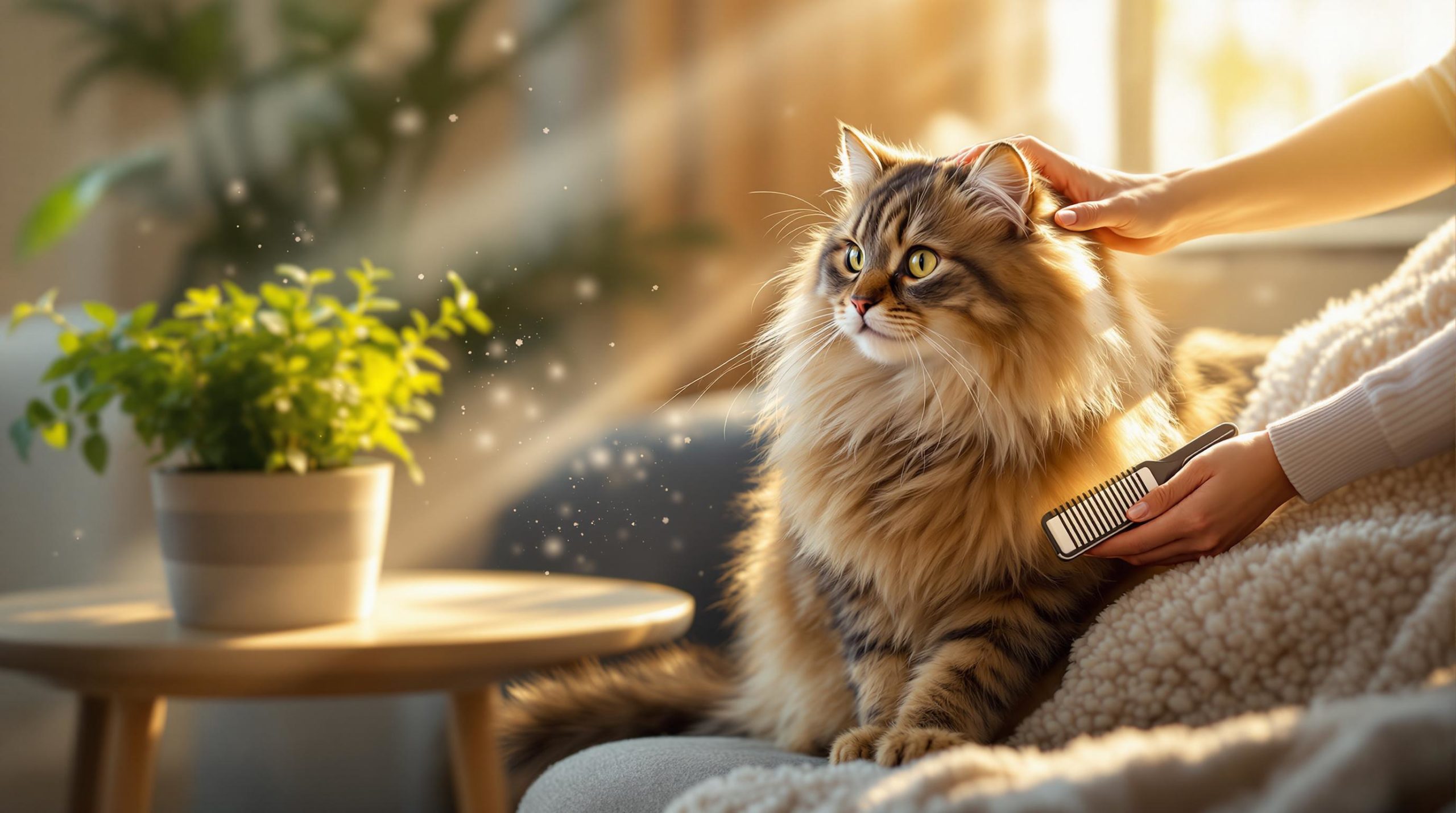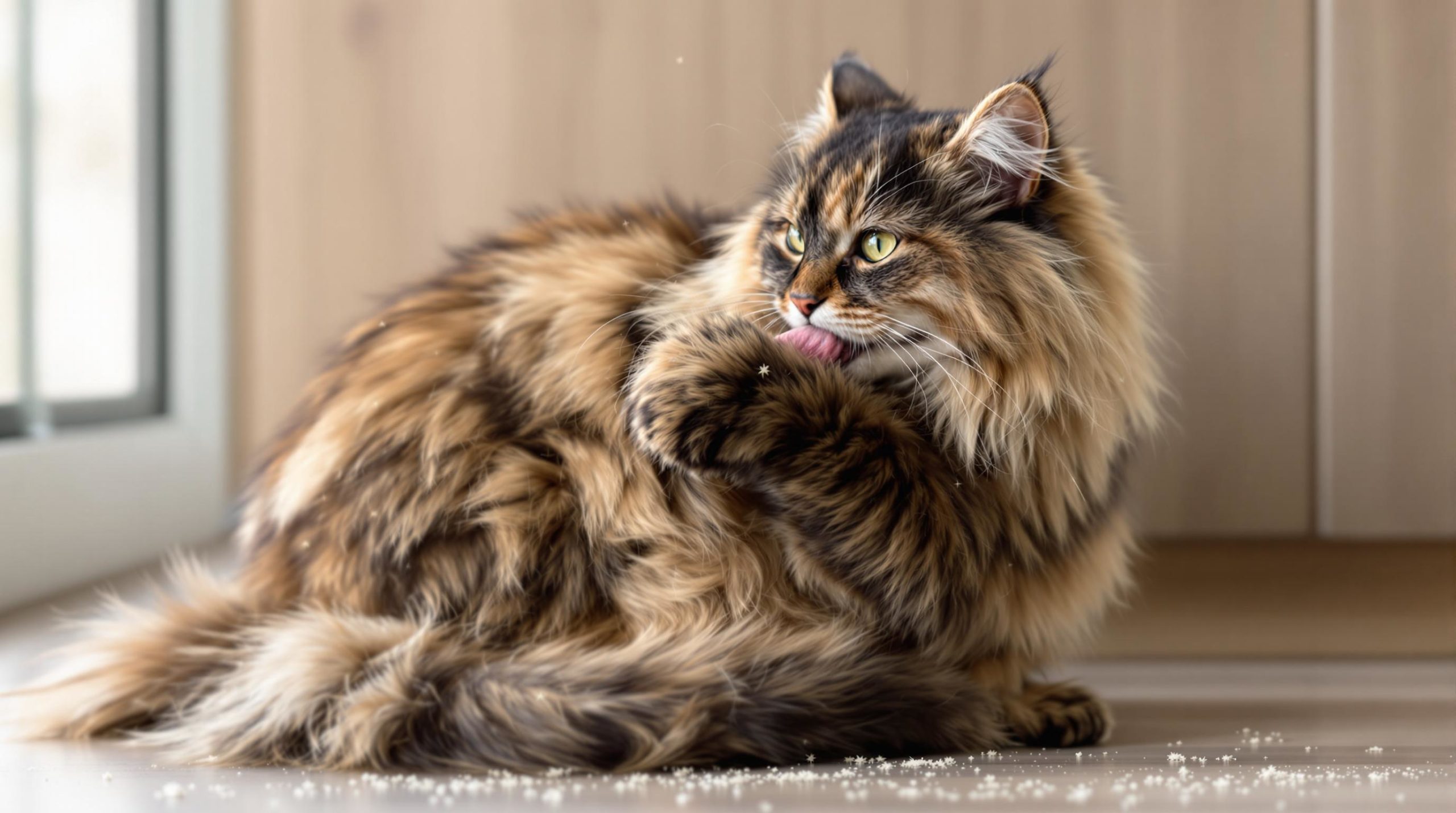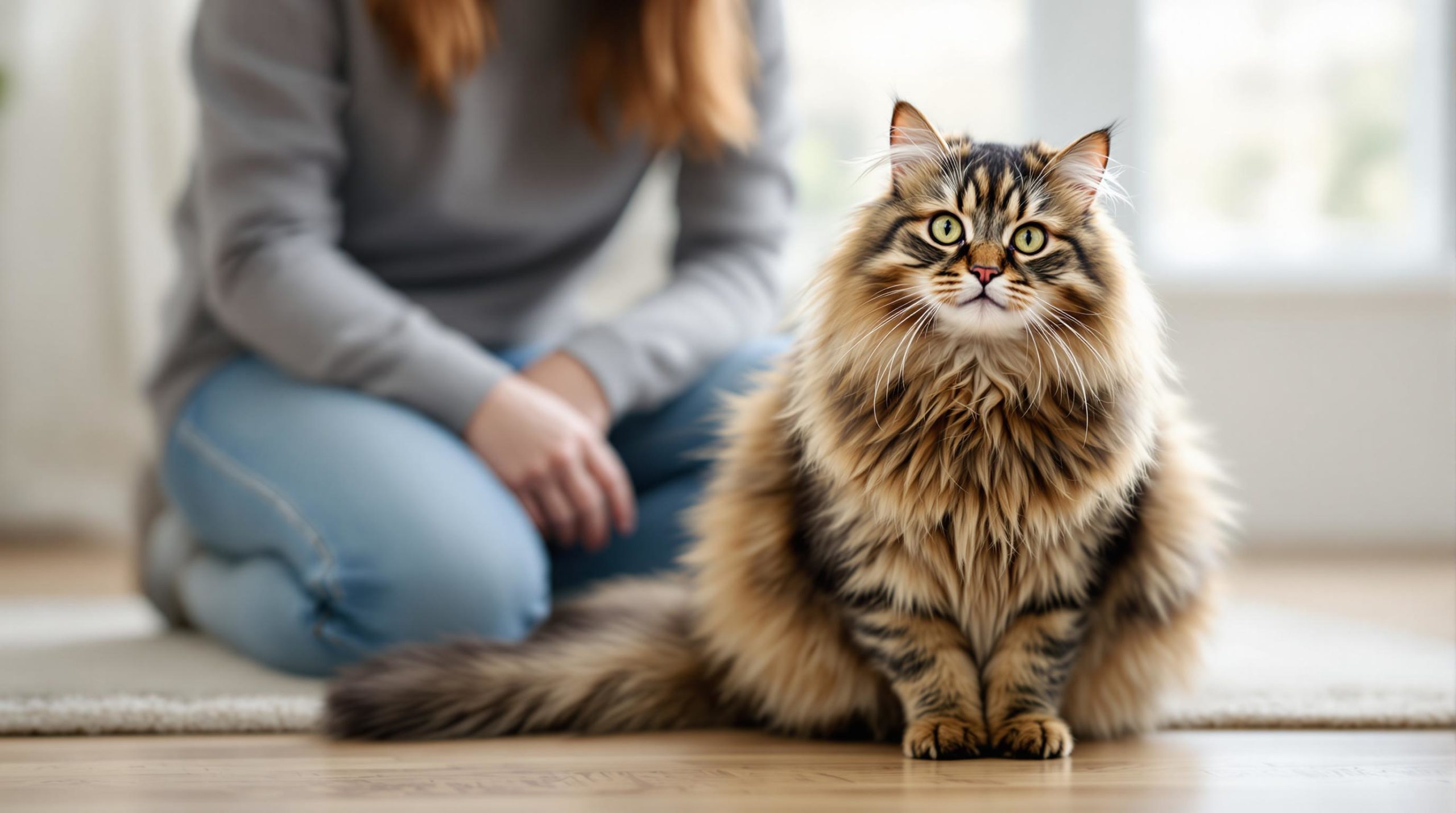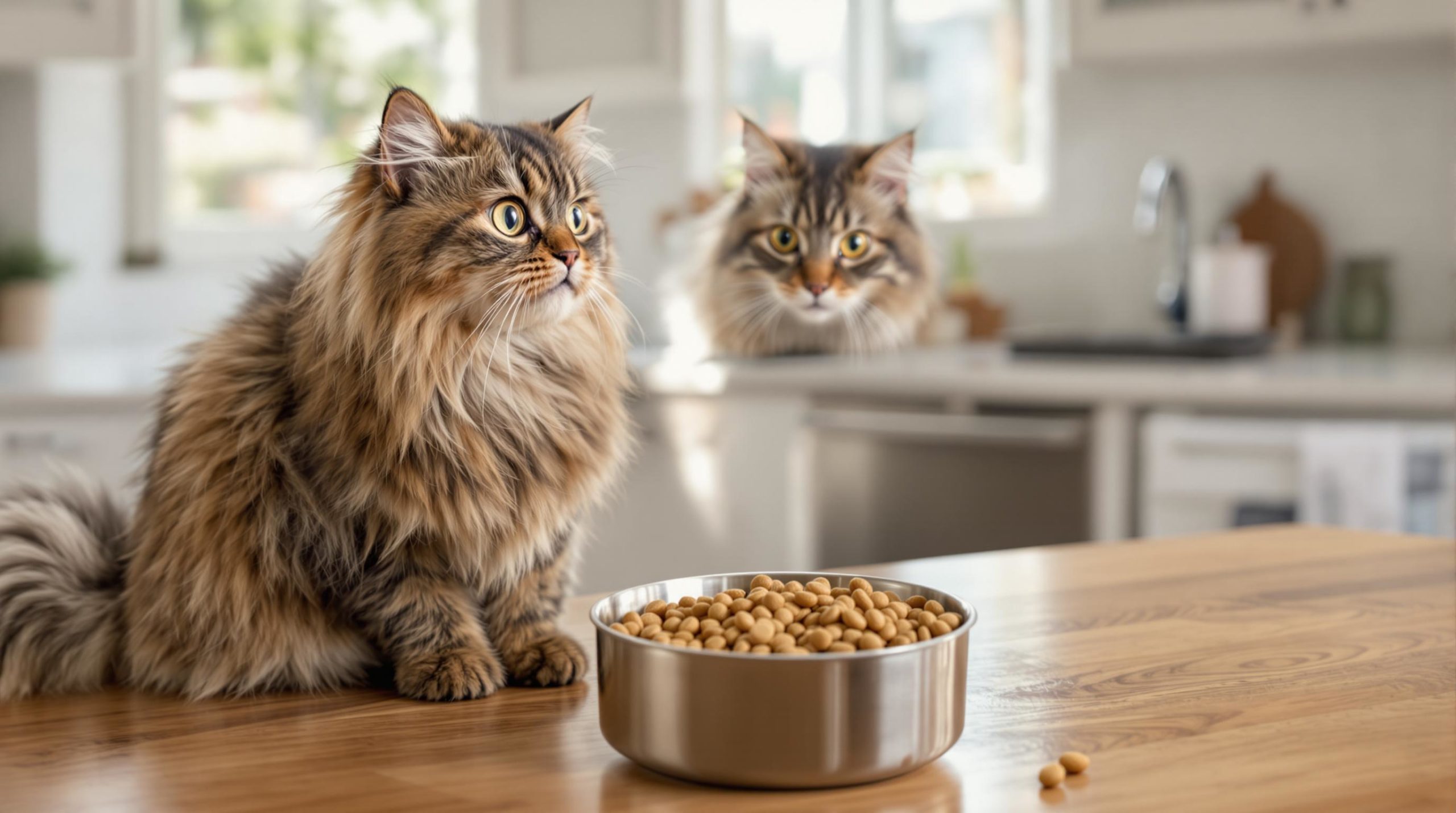Understanding Maine Coon Allergies: Causes and Solutions for Cat Lovers

The Maine Coon cat captivates many with its majestic appearance and friendly demeanor, yet for some cat lovers, these beautiful companions bring an unwelcome challenge: allergies. The sensitivity to Maine Coon allergens can complicate the joy of sharing a home with these gentle giants. Understanding the intricate causes behind Maine Coon allergies and adopting well-informed strategies can make a significant difference in both cat care and pet health. This guide unpacks the scientific basis of allergic reactions, explores the most common symptoms, and presents actionable solutions—ranging from grooming tools to environmental control measures—all designed to promote a harmonious living environment. The role of emerging veterinary advice and advanced online telemedicine platforms will also be highlighted to provide accessible and personalized care options for affected individuals. With the right knowledge, managing Maine Coon allergies can evolve from a frustrating obstacle to a surmountable aspect of pet ownership.
Decoding Maine Coon Allergies: What Causes Allergic Reactions in Cat Lovers?
Maine Coon allergies stem from the same biological triggers as other cat breeds, but their distinctive features sometimes amplify the exposure to allergens. The culprit proteins, primarily Fel d 1 and Fel d 4, play a pivotal role in allergic responses. Fel d 1 is the chief allergen produced in the saliva and sebaceous glands of cats, while Fel d 4, though less prevalent, resides in cat saliva and contributes to these sensitivities.
When Maine Coons groom themselves, these proteins are distributed across their fur and skin, ultimately becoming airborne via dander and fur shedding. This is particularly relevant to Maine Coons due to their long, thick coats which can trap more dander—a fact often overlooked in allergen management.
Understanding the biological mechanisms behind these proteins can illuminate why some individuals develop reactions upon contact or proximity. Allergic responses emerge as the immune system mistakes these proteins for harmful invaders, triggering various symptoms to rid the body of the allergen. In 2025, ongoing allergy research continues to emphasize how these proteins evoke immune hyper-responsiveness in sensitive individuals.
Key Allergens in Maine Coon Cats
- Fel d 1: The primary allergen, often responsible for sneezing, itchy eyes, and respiratory symptoms.
- Fel d 4: A secondary allergen contributing to the overall allergenic profile.
- Dander: Tiny flakes of skin that carry allergenic proteins and linger on surfaces and in the air.
Aside from proteins in saliva and skin, allergens can also come from urine in some rarer cases, yet this is less prominent for Maine Coon allergies in household environments.

Why Maine Coons Can Trigger Stronger Allergic Responses
The luxurious, thick fur of a Maine Coon increases the surface area that can harbor allergen-carrying dander. Their size—the breed ranks among the largest domestic cats—also means more skin producing allergenic proteins overall. Additionally, their grooming habits distribute these proteins thoroughly, creating an allergen-rich environment around them.
Not all Maine Coon cats produce the same levels of allergens; individual and genetic variability plays an influential role. This variability helps explain why some allergy sufferers tolerate a Maine Coon better than other breeds or even some cats in general.
| Factor | Description | Allergy Impact |
|---|---|---|
| Fur Length and Density | Long, thick coat unique to Maine Coons | Higher retention and spread of allergen proteins |
| Size of the Cat | One of the largest domestic feline breeds | Increased allergen production surface area |
| Grooming Behavior | Frequent self-grooming spreads allergens across fur | Enhanced allergen dispersal in living spaces |
| Individual Protein Production | Varies genetically between individual cats | Variable allergy impact for owners |
Ultimately, understanding these specific causes lays the foundation for effective allergy management tailored especially for Maine Coon cat owners.
Recognizing Symptoms of Maine Coon Allergies: Identifying Signs Early for Better Cat Care
Awareness of allergenic symptoms is essential in cat care to swiftly address reactions and improve both human and feline well-being. The manifestations of Maine Coon allergies closely mirror those arising from other cat breeds but can intensify with exposure levels linked to the breed’s unique characteristics.
Allergy symptoms usually fall into respiratory, ocular, dermatological, or systemic categories. Mild reactions may present with occasional sneezing or watery eyes, while severe cases potentially precipitate asthma attacks or disruptive skin conditions requiring veterinary advice.
Common Symptoms Linked to Maine Coon Allergies
- Sneezing and Nasal Congestion: Frequent sneezing fits accompanied by stuffy or runny nose.
- Itchy, Red, or Watery Eyes: Persistent eye irritation reflecting allergic conjunctivitis.
- Coughing and Wheezing: Respiratory distress particularly in individuals prone to asthma.
- Skin Reactions: Hives, rashes, or intense itching leading to scratching and potential hair loss.
- Asthma Exacerbation: Allergens can trigger or worsen chronic respiratory conditions.
Timely identification of these symptoms can prompt interventions that minimize discomfort and prevent escalation. In Maine Coons themselves, allergy signs may present differently, underscoring the importance of veterinary guidance in both pet health and owner well-being.
| Symptom | Description | Signs in Owners | Signs in Maine Coons |
|---|---|---|---|
| Sneezing | Reflex to clear nasal passages | Repeated sneezes, nasal discomfort | Less common, possible respiratory irritation |
| Watery Eyes | Eye tissue inflammation | Itchy, red, or tearing eyes | Occasional eye discharge or scratching |
| Skin Rashes | Inflamed skin areas | Hives, redness, itching | Hair loss, scratching, irritation |
| Respiratory Issues | Restrictive breathing symptoms | Coughing, wheezing, asthma attacks | Rare, but possible respiratory distress |

Practical Tips to Monitor and Identify Allergy Symptoms
- Keep an Allergy Diary: Note when symptoms appear and any corresponding interactions with the Maine Coon.
- Observe Grooming and Behavior: Excessive scratching or grooming can signal feline allergies.
- Consult Healthcare Professionals: Vet and medical advice can pinpoint causes and suggest treatments.
- Test Management Measures: Trial environmental control or grooming routines to see symptom changes.
- Recognize Trigger Patterns: Identify if symptoms worsen during certain seasons or home activities.
Effective Management Strategies for Maine Coon Allergies: Combining Hygiene, Home Adjustments, and Medical Treatments
Managing allergies linked to Maine Coon cats involves a multi-pronged approach. With pet health and owner comfort in focus, practical solutions revolve around reducing allergen exposure, enhancing home environments, and utilizing veterinary advice for medical support.
Leveraging Cleaning and Grooming Tools for Allergen Reduction
Maintaining the Maine Coon’s coat and living areas can dramatically limit the presence of allergens:
- Frequent Bathing: Regular baths using hypoallergenic shampoos reduce Fel d 1 and Fel d 4 proteins on the cat’s fur.
- Consistent Brushing: Removing loose hair and dander prevents their accumulation and dispersion around the home.
- Professional Grooming Sessions: Specialized grooming services can tackle dense coats more effectively.
- Use of High-Quality Grooming Tools: Tools designed for long-haired cats ensure gentle but thorough care.
Ideally, grooming is done by a non-allergic individual or with protective equipment such as masks to reduce allergen inhalation during the process.
Home Environment Adjustments to Enhance Environmental Control
Creating allergen-reduced spaces includes targeted cleaning and air quality improvements:
- Air Purifiers with HEPA Filters: These trap dander and airborne proteins, improving indoor air quality.
- Frequent Vacuuming: Using HEPA-filtered vacuums to clean floors, carpets, and upholstery limits settled allergens.
- Surface Cleaning: Regularly wiping down counters, furniture, and pet areas removes allergens before they become airborne.
- Designating Pet-Free Zones: Restricting cats from bedrooms or other sensitive rooms minimizes allergen exposure where people rest.
| Management Strategy | Tools/Approach | Benefit |
|---|---|---|
| Bathing | Hypoallergenic shampoos, gentle water rinses | Reduces allergen protein load on fur |
| Grooming | Long-haired cat brushes, grooming gloves | Prevents spread and buildup of dander |
| Air Purification | HEPA filters, air cleaners | Improves air quality by trapping allergens |
| Cleaning | HEPA vacuums, microfiber cloths | Decreases allergen accumulation on surfaces |
| Pet-Free Zones | Closed doors, physical barriers | Limits allergen exposure in sensitive areas |
These methods are effective when consistently applied and combined with thorough cat hygiene practices.
Medical Treatments and Veterinary Guidance
While environmental methods build a strong foundation, medical interventions often provide critical relief:
- Over-the-Counter Options: Antihistamines, nasal corticosteroids, and decongestants help manage mild to moderate symptoms.
- Prescribed Medications: More severe cases might require prescription drugs, including corticosteroids or immunosuppressants, administered under veterinary or medical supervision.
- Sublingual Immunotherapy (SLIT): A promising long-term solution involves allergen extracts placing under the tongue to gently train the immune system.
- Regular Monitoring: Follow-up consultations ensure tailored adjustments to treatment plans as symptoms evolve.
Combining veterinary advice with diligent home and pet care maximizes chances of allergy symptom reduction and an improved quality of life for both cat and owner.
Feeding and Preventative Care: Hypoallergenic Cat Food and Pet Supplements for Reducing Maine Coon Allergy Risks
Nutrition and preventative care are essential pillars in managing allergies within Maine Coon populations. Hypoallergenic diets and pet supplements can minimize flare-ups and bolster overall pet health.
Key Hypoallergenic Cat Food Options
Opting for specialized diets can reduce dietary allergens and promote gut health:
- Limited Ingredient Diets: Featuring one protein source such as duck, venison, or rabbit to avoid common allergens like chicken or beef.
- Hydrolyzed Protein Diets: Proteins broken into tiny peptides reduce recognition by the immune system and lower allergic reactions.
- Grain-Free Varieties: Removing grains helps if sensitivities exist, although such allergies are comparatively rare in Maine Coons.
- Veterinary Prescription Diets: Tailored formulas vetted by veterinarians for cats with definitive food allergies.
Transitioning a Maine Coon gently onto a hypoallergenic diet under veterinary supervision is crucial for effective allergy management.
Advantages of Pet Supplements in Allergy Control
Specific supplements enhance immunity and skin health, potentially reducing allergic symptoms:
- Omega-3 Fatty Acids: Anti-inflammatory properties support skin barrier function and reduce irritation.
- Probiotics: Promoting gut flora balance, which can influence the immune response and lessen allergy severity.
- Nutritional Support Vitamins: Vitamins like E or B complex aid in skin health and general wellness.
In 2025, advancements in pet supplements emphasize natural compounds and improved bioavailability, making these additions increasingly valuable in cat care protocols.
| Diet Type | Primary Protein Source | Purpose | Considerations |
|---|---|---|---|
| Limited Ingredient Diet | Single novel protein (e.g., duck, venison) | Minimize allergen exposure | Requires careful selection and vet approval |
| Hydrolyzed Protein Diet | Proteins broken down into peptides | Reduce immune recognition | Appropriate for severe food allergies |
| Grain-Free Diet | Various, no grains | Avoid grain sensitivities | Least common food allergy source |
| Prescription Diet | Veterinary formulated proteins and carbs | Control diagnosed allergies | Veterinarian guidance required |

Best Practices for Allergy Prevention in Maine Coons
- Regular flea prevention to avoid flea allergy dermatitis.
- Systematic grooming using proper grooming tools to remove allergens.
- Maintaining clean living quarters and ongoing environmental control.
- Early veterinary check-ups to detect and manage allergy symptoms promptly.
Leveraging Modern Veterinary Advice and Telemedicine: A New Frontier for Managing Maine Coon Allergies
Advances in veterinary medicine and the rapid rise of telemedicine platforms have revolutionized how cat allergies, especially in breeds like the Maine Coon, are diagnosed and managed. Access to expert advice has become more convenient and personalized than ever before, reshaping standard practices in pet health management.
Benefits of Online Veterinary Consultations for Allergy Management
- Convenience: Consult allergists and veterinarians from home, avoiding stressful travel with your pet.
- Expert Access: Receive board-certified allergy specialists’ insights tailored specifically to your Maine Coon’s needs.
- Customized Treatment Plans: Personalized advice on diet, grooming, and medical options enhances success in allergy control.
- Follow-Up Care: Monitor treatment effectiveness and adjust protocols in real-time through virtual follow-ups.
For example, services such as HeyAllergy integrate telemedicine to bring sublingual immunotherapy and detailed assessment to cat owners’ fingertips, easing the challenges inherent in allergy management.
| Service Feature | Benefit to Owner | Impact on Maine Coon Allergy Management |
|---|---|---|
| Expert Consultations | Remote access to specialists | Accurate diagnosis and tailored therapy |
| Personalized Treatment Plans | Targets individual allergic profiles | Maximizes symptom control |
| Regular Follow-Ups | Monitors progress conveniently | Timely treatment adjustments |
| Flexible Scheduling | Fits owner availability | Improves treatment adherence |
Telemedicine’s role in 2025 highlights an exciting trend toward integrated care models in pet health, ensuring Maine Coon allergies no longer pose an insurmountable barrier to the loving bond between cat and owner.
FAQ
- Can Maine Coon cats be hypoallergenic?
Though Maine Coons typically produce lower levels of the Fel d 1 allergen compared to some other breeds, no cat is truly hypoallergenic. Their long and dense fur can retain allergenic proteins, potentially causing reactions in sensitive individuals.
- What are the most common symptoms of allergies triggered by Maine Coons?
Common symptoms include sneezing, itchy or watery eyes, nasal congestion, skin rashes, and in some cases respiratory issues like coughing or wheezing.
- How can pet owners reduce allergen exposure from their Maine Coon cats?
Regular grooming, systematic home cleaning, using air purifiers, establishing pet-free zones, and consulting veterinary specialists for tailored allergy management are effective strategies.
- Are allergic reactions from Maine Coons transmissible to humans?
Allergies themselves are not contagious. However, allergens such as pollen or dander carried by the cat can cause reactions in sensitive humans.
- Is telemedicine a reliable option for managing Maine Coon allergies?
Yes. Telemedicine platforms offer expert access, personalized treatment plans, and ongoing care, making allergy management more accessible and adaptable for pet owners.